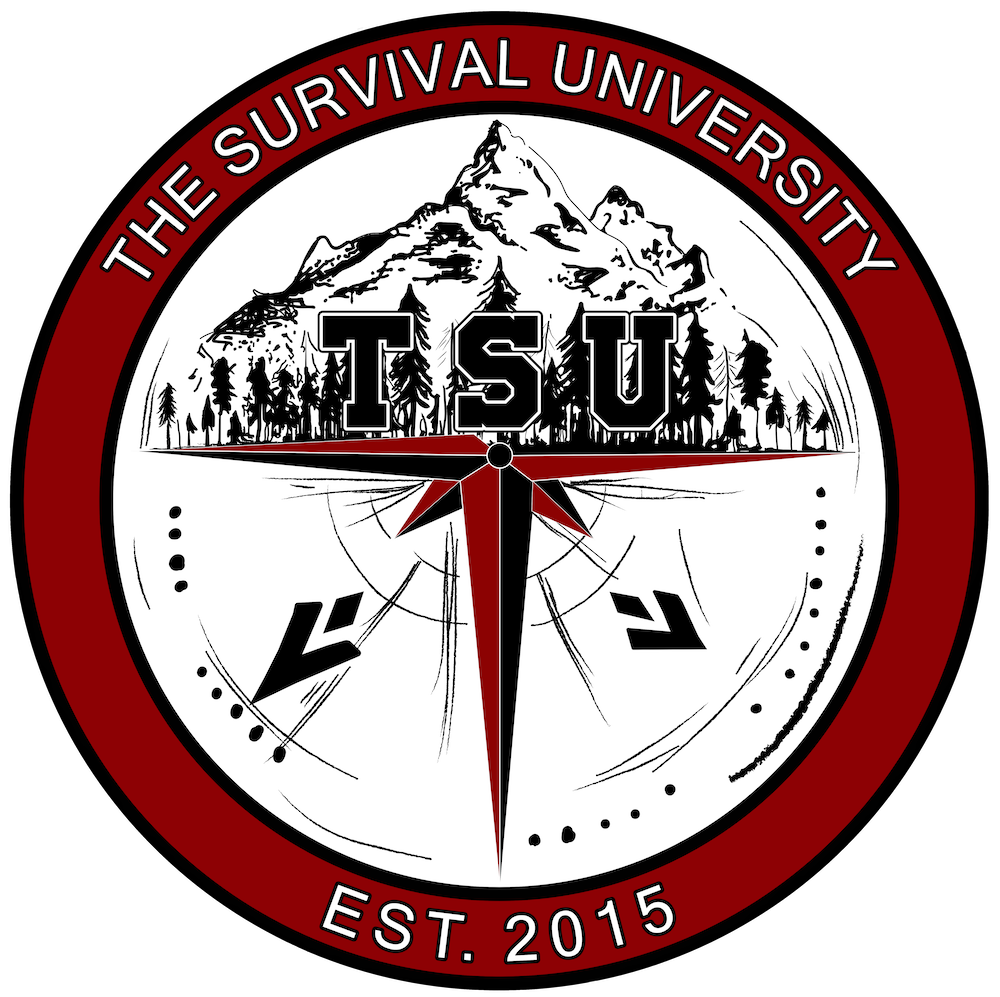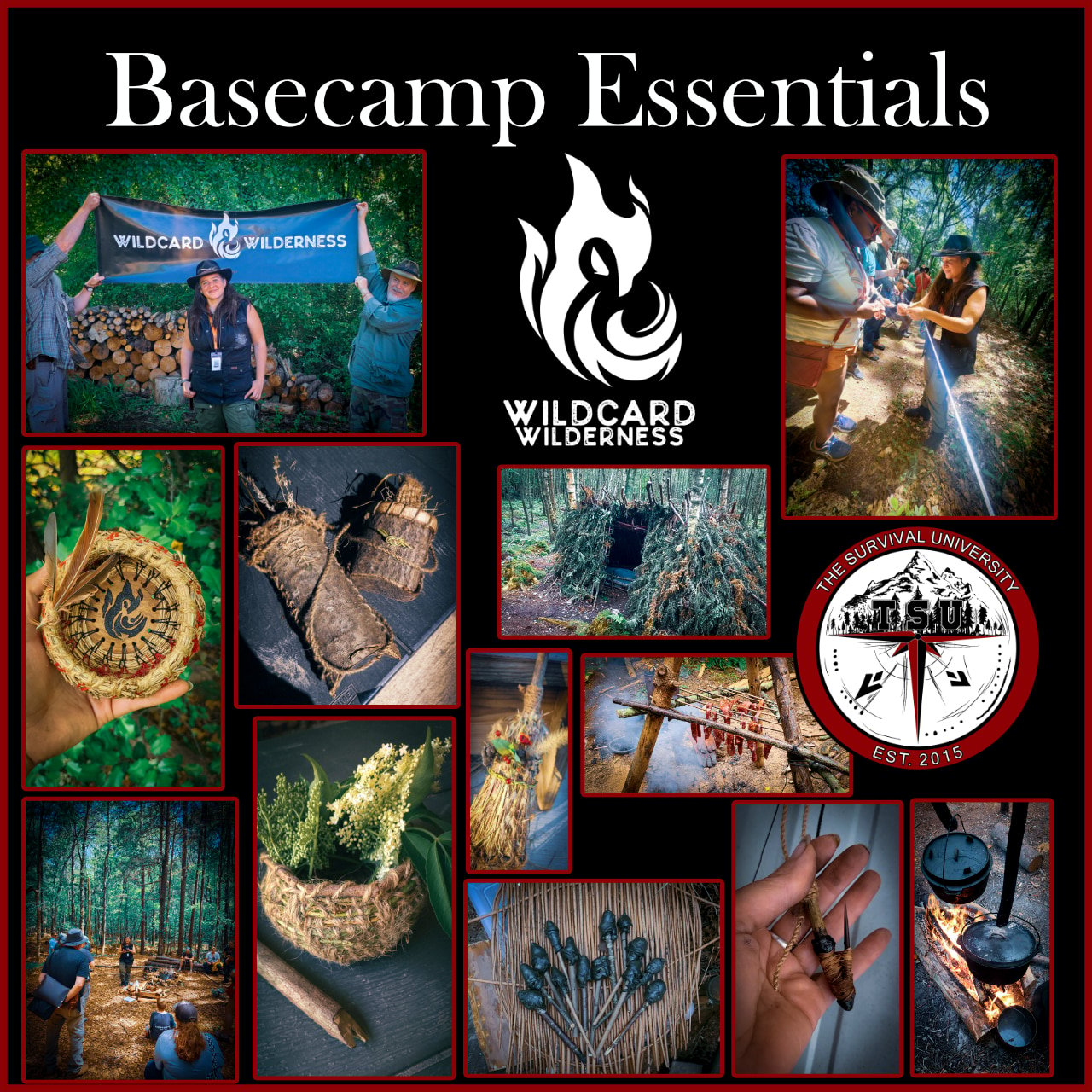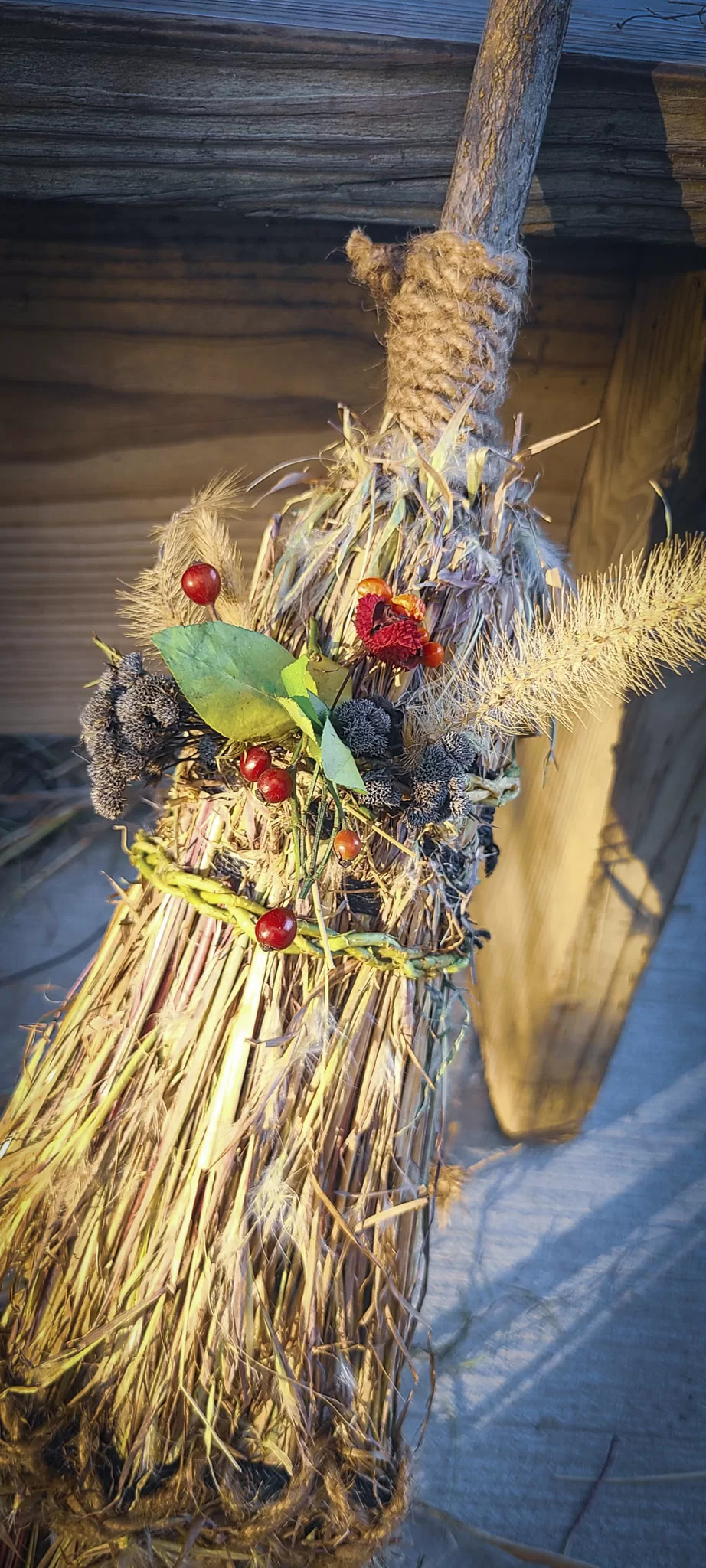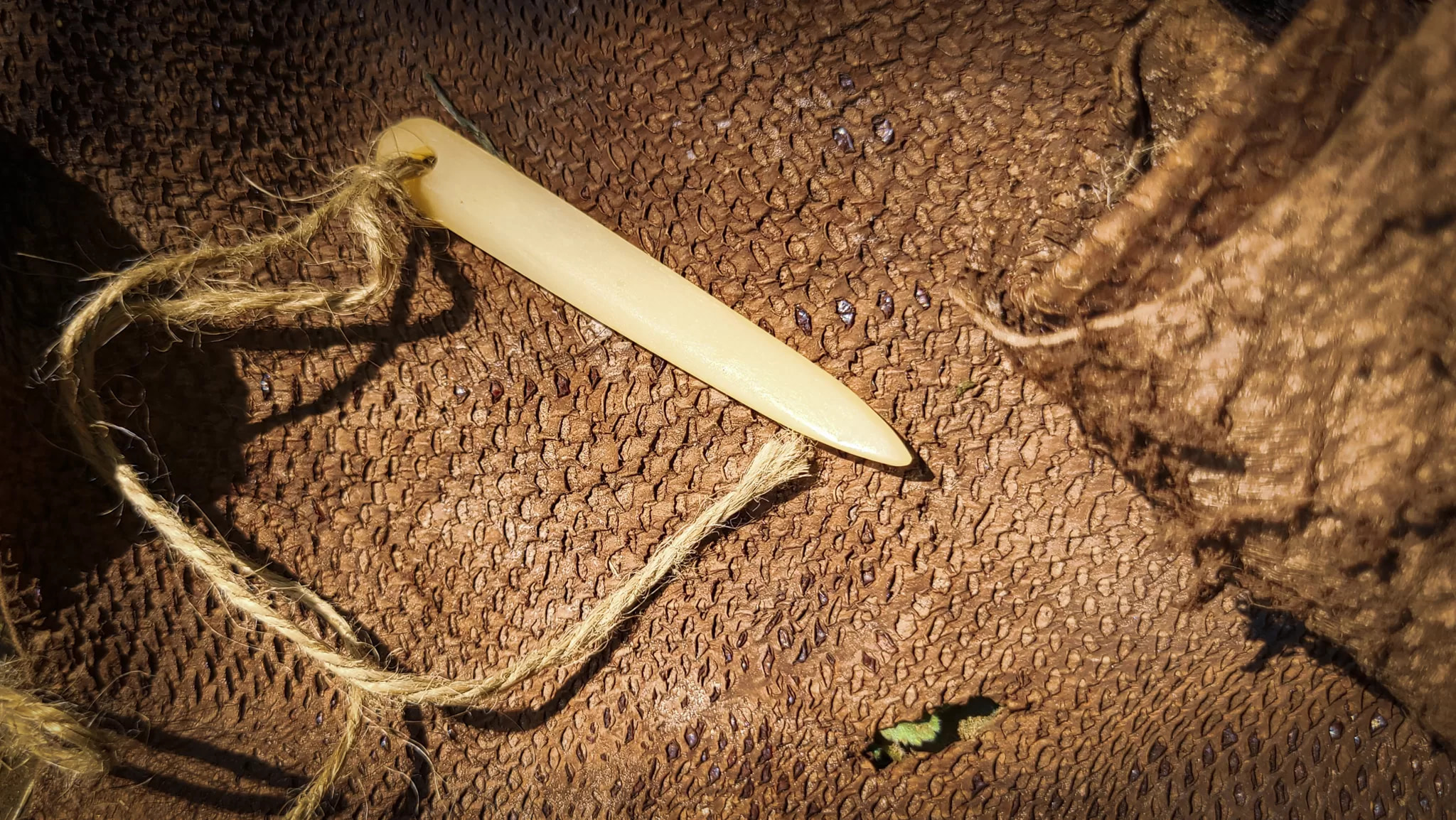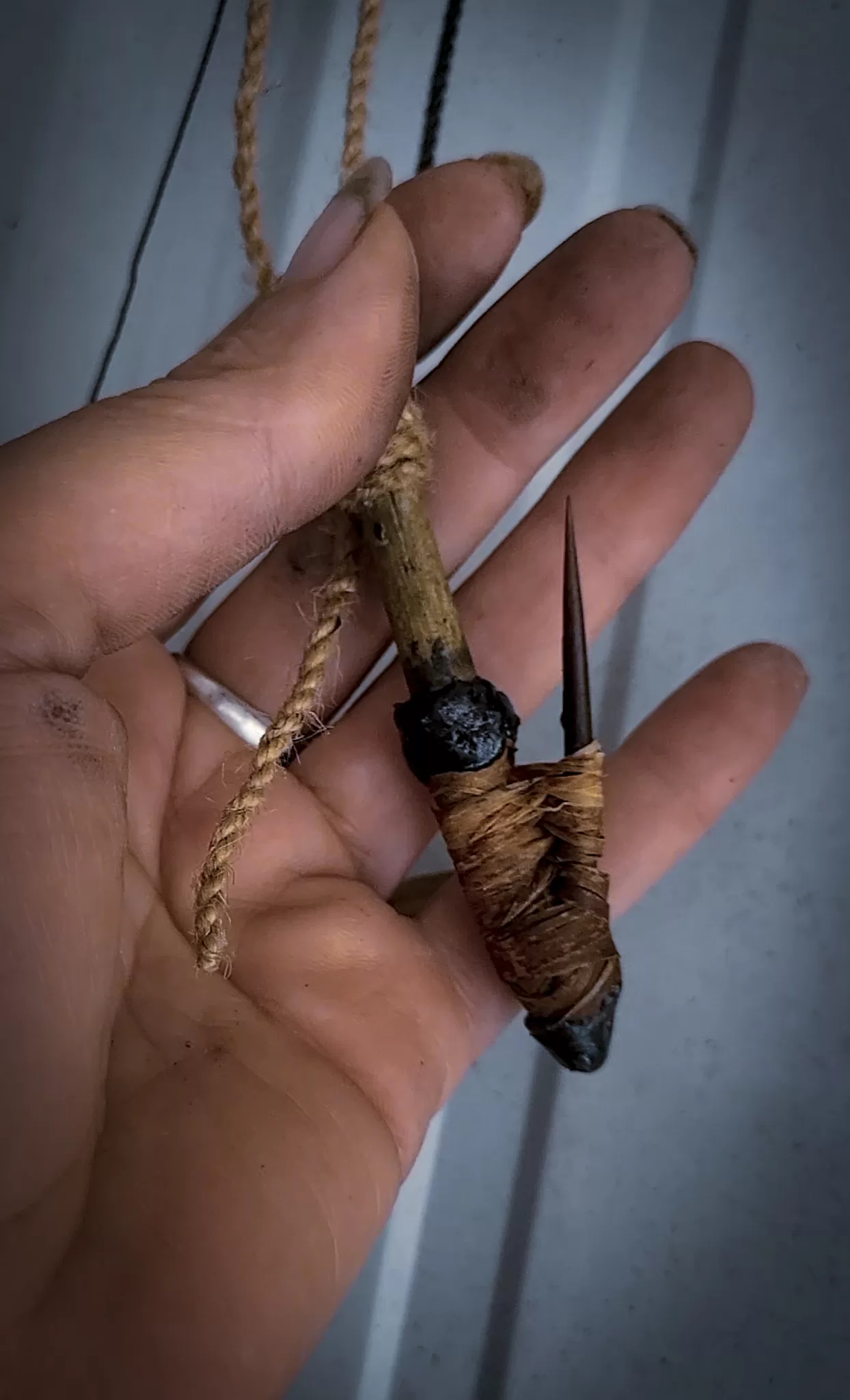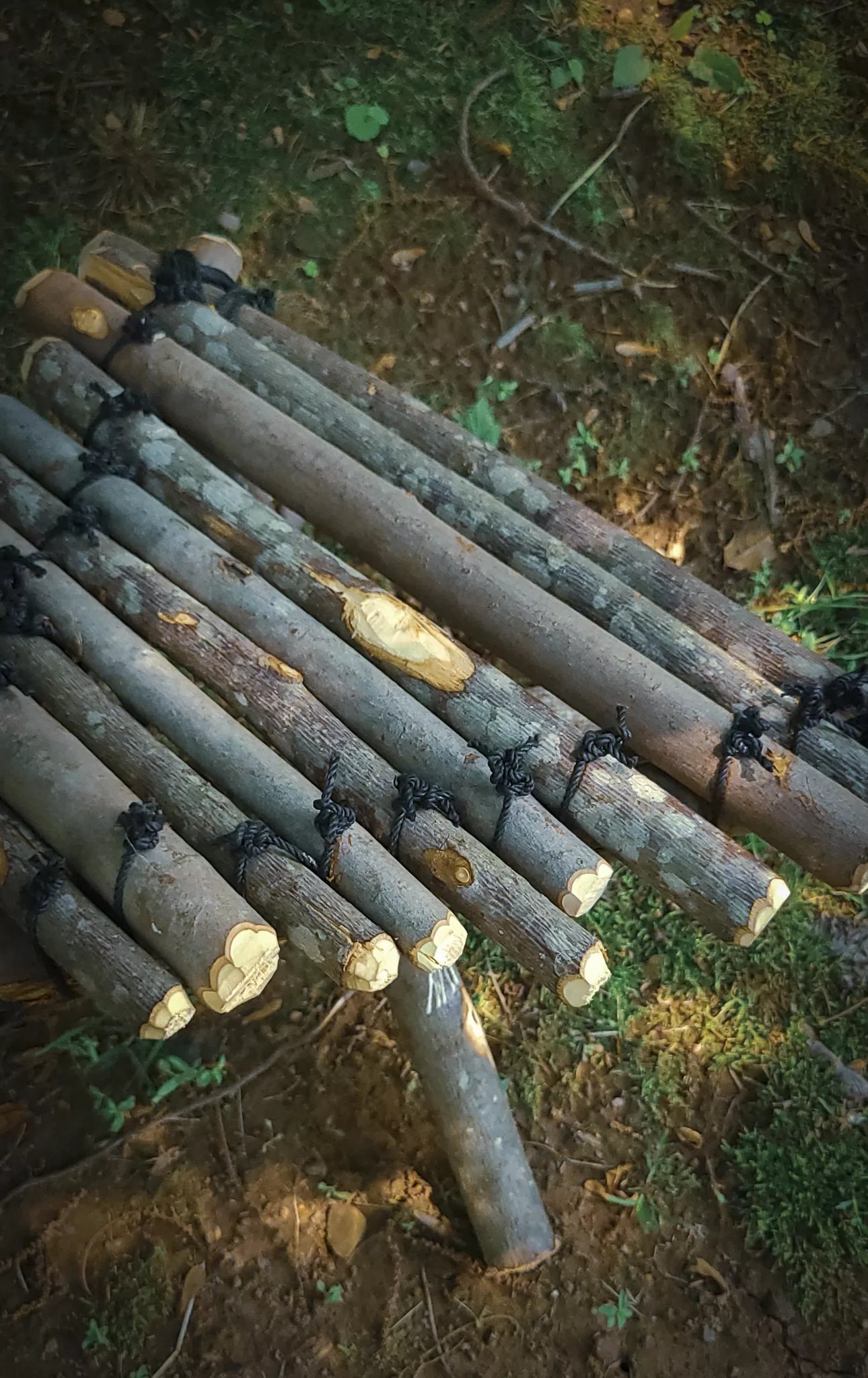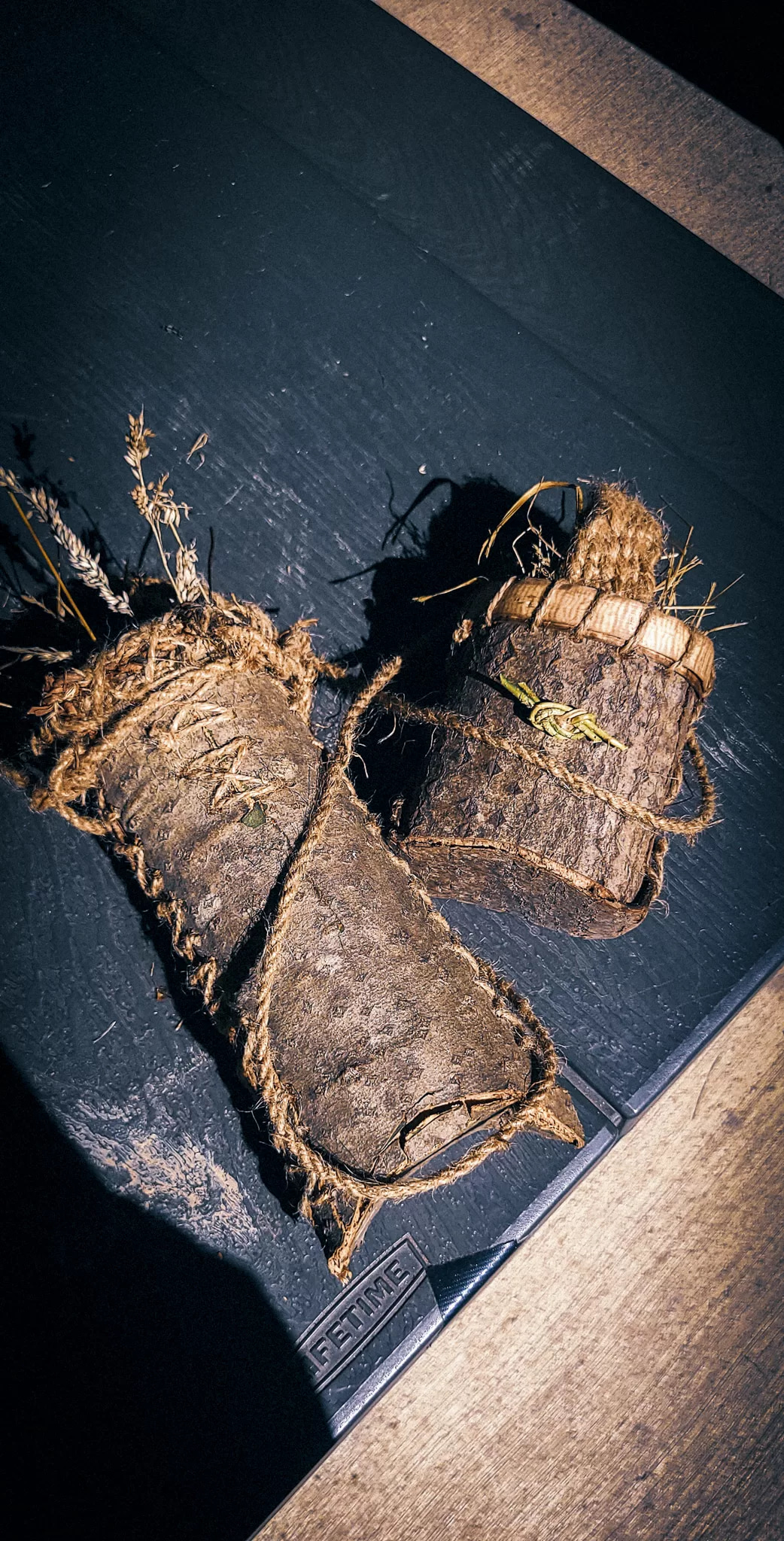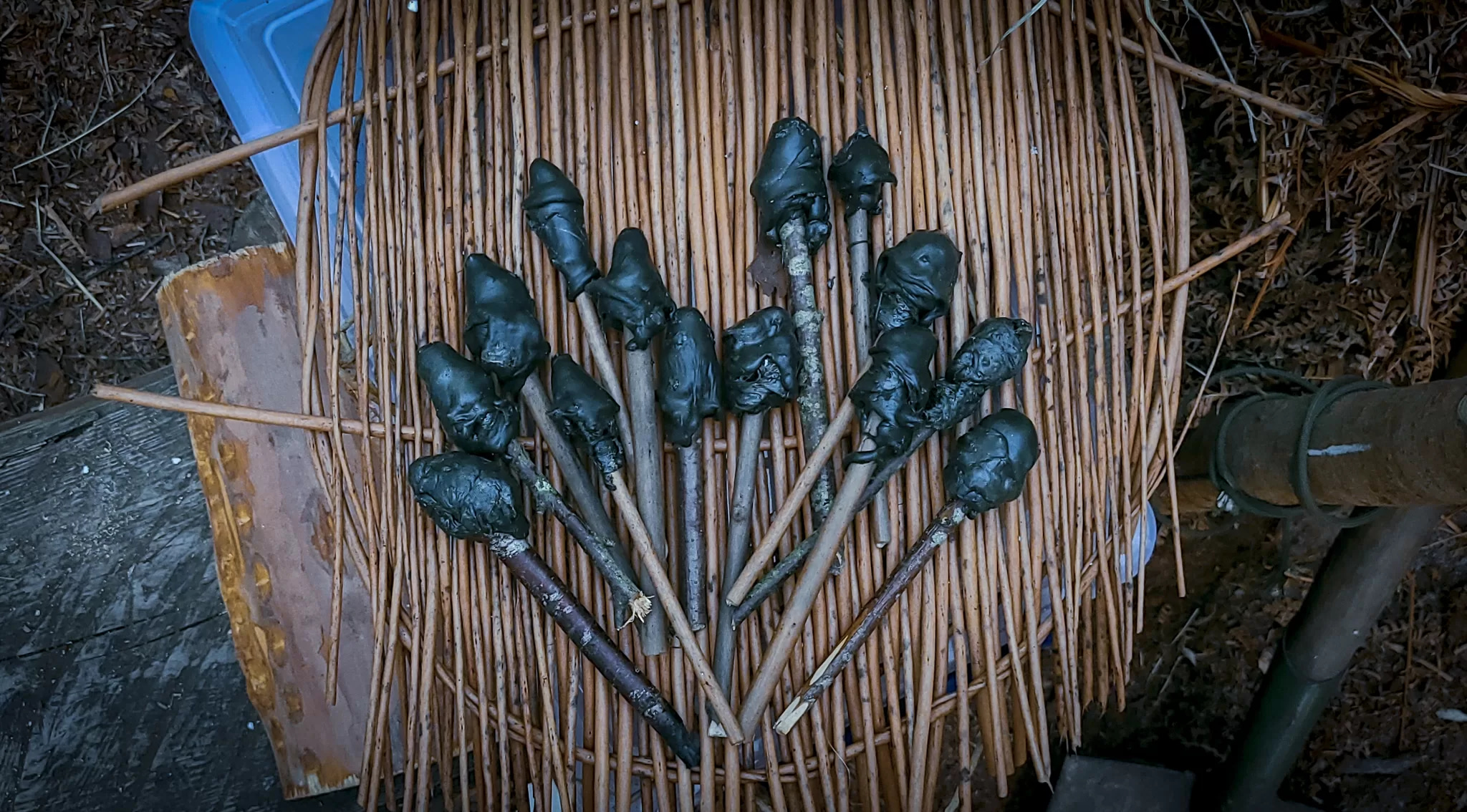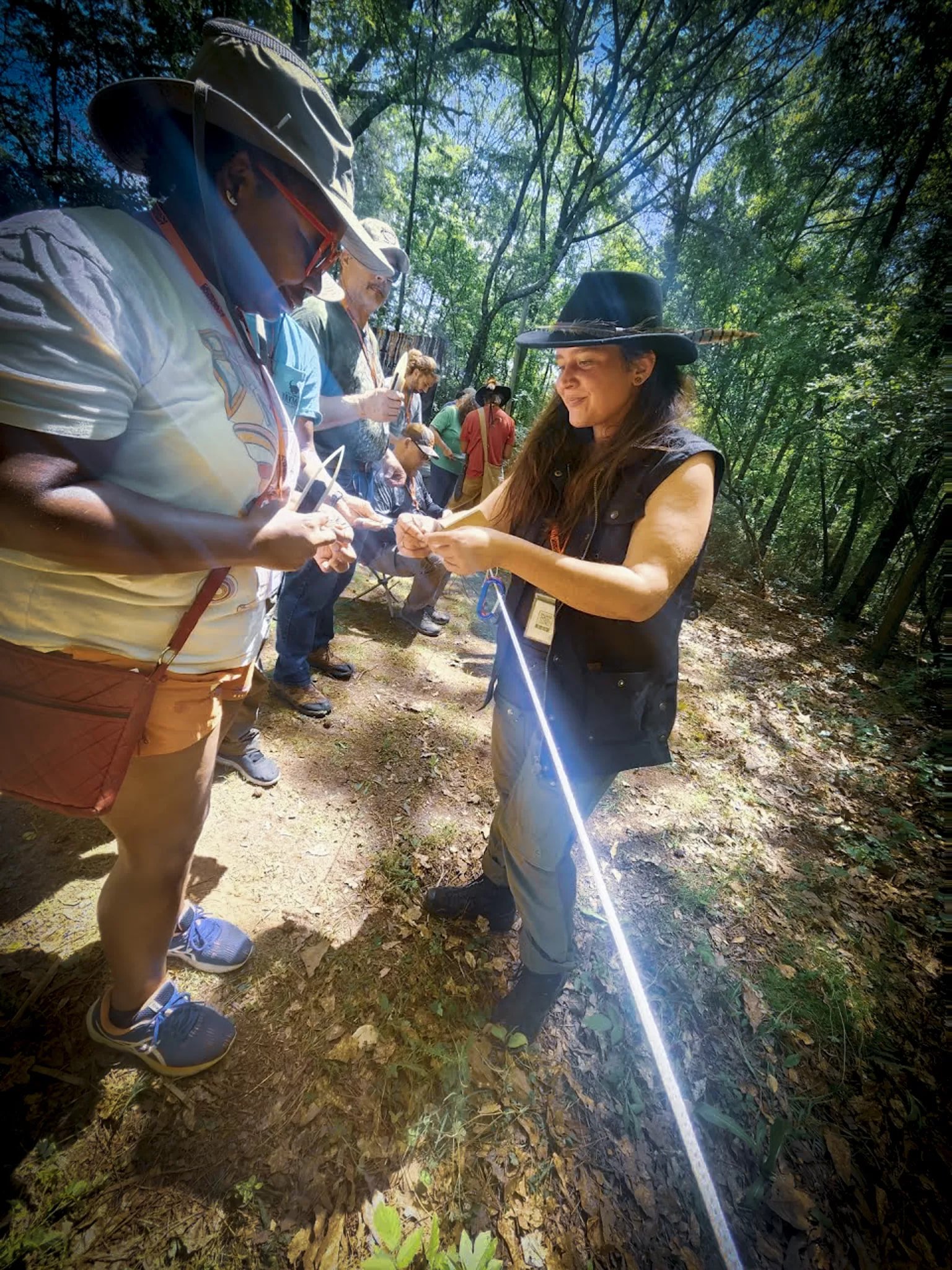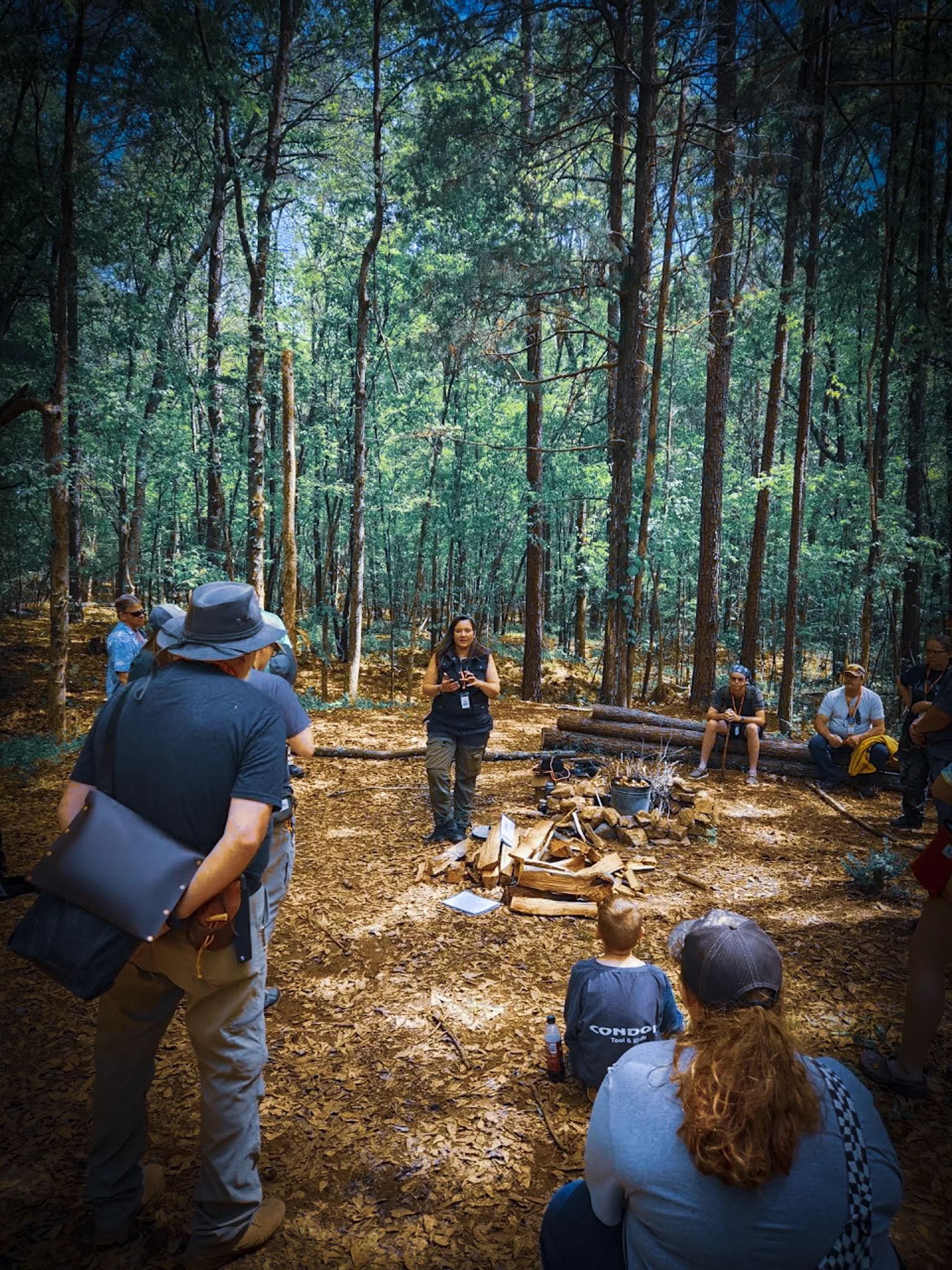BUSHCRAFT BASICS: BASECAMP ESSENTIALS
$395.0
BUSHCRAFT BASICS: BASECAMP ESSENTIALS
WITH JACKS GENEGA WILDCARD WILDERNESS SURVIVAL
Basecamp Essentials is a course that is designed to promote a sense of wilderness living with others and beyond our basic needs of survival. Students will learn how to build varying means of comfort entirely off the landscape including benches, chairs, and beds.
DATES
July 26-28, 2024
COURSE DESCRIPTION
Basecamp Essentials is a course that is designed to promote a sense of wilderness living with others and beyond our basic needs of survival. Students will learn how to build varying means of comfort entirely off the landscape including benches, chairs, and beds.
As a class we will learn how to build instruments such as mallets, sawhorses, and vices and how they can aid in processing fuel and other materials. Other topics will include cutting tool safety, cooking over an open fire and food preservation, camp maintenance, simple pioneering as well as several different knots, notches and lashings on top of some handcrafted projects at the end of the course.
Students will walk away with the knowledge of how to construct a basecamp to share in a community or as individuals in the wild.
ITINERARY
Join us for an immersive wilderness experience in Basecamp Essentials! This course covers a wide range of topics and hands-on activities aimed at teaching you how to construct functional furniture, tools, and defense structures in the wild.
Day 1: Furniture Construction
- Introduction to bushcraft principles and self-aid techniques
- Knife and saw safety
- Resource walk to gather materials
- Try stick and pack frame construction
- Team projects: Camp chair, hammock chair, sawbuck, couch, tripod smoker
- Pot crane construction and cooking over a campfire
Day 2: Tool Construction
- Food preservation overview and ground refrigerator demonstration
- Woodland loom and grass broom construction
- Cordage making
- Felling overview and bucking tutorial
- Camp stool and spoon/spatula construction
- Discussion on the importance of wood ash
- Cast iron dessert and campfire tales
Day 3: Defense
- Candle Making
- Making containers off the landscape
- Time to finish projects and enjoy cowboy coffee
- Wattle fence construction
- Discussion on safety in the woodlands
- Setting up perimeter line with alarm for basecamp
- Optional: Trap conversion (if time permits)
- Group photo to commemorate the experience
COURSE TOPICS
- Furniture Construction
- Introduction, Risk Assessment, and Self-Aid
- Knife and Saw Safety
- Resource Walk for Try Stick and Pack Frame Material
- Try Stick Construction
- Pack Frame Construction
- Team Projects: Camp Chair, Hammock Chair, Sawbuck, Couch, Tripod Smoker
- Resource Walk for Pot Crane
- Pot Crane Construction
- Cooking Over a Campfire and Evening Meal
- Food Preservation Overview
- Ground Refrigerator Demonstration
- Woodland Loom and Grass Broom Construction
- Cordage Making
- Stool and Spoon/Spatula Construction
- Felling Overview and Bucking Tutorial
- Camp Stool Construction
- Spoon and Spatula Demonstration
- Students Make Spoons and Spatulas
- Importance of Wood Ash Discussion
- Cast Iron Dessert and Campfire Tales
- Defense Overview
- Wattle Fence Construction
- Setting Up Perimeter Line with Alarm
- Optional: Trap Conversion
COURSE OUTCOMES AND DEMONSTRATED SKILLS
By the end of the course, participants will be able to:
- Construct various types of furniture, including camp chairs, hammock chairs, a sawbuck, a couch, and a tripod smoker.
- Understand the importance of risk assessment and demonstrate self-aid skills in outdoor settings.
- Practice safe handling and use of knives and saws during woodworking activities.
- Identify and gather suitable materials for constructing a try stick, pack frame, pot crane, woodland loom, and grass broom.
- Construct a try stick, pack frame, pot crane, grass broom, camp stool, spoon, and spatula using appropriate techniques and tools.
- Demonstrate knowledge of food preservation techniques, including ground refrigerator use and smoker operation.
- Create cordage using natural materials for various purposes.
- Understand the basics of felling trees and apply bucking techniques using a sawbuck.
- Assemble a camp stool with proper joinery methods and auger use.
- Gain knowledge of wood ash and its significance in outdoor cooking and resource utilization.
- Set up a wattle fence for defensive purposes and construct a perimeter line with an alarm system.
- Optional: Convert the perimeter line with an alarm into a trap, showcasing understanding of trap-building concepts.
LENGTH:
3 days/2 nights
ACCOMMODATIONS
We do have a central community campfire location with a few designated campsites but mostly offer dispersed camping. Students will be able to drive their car within 100 feet of the main camp and will not have to hike gear for long distances.
- Sanitation/Hygiene: A portable restroom and potable water will be provided at the main camp.
FOOD AND WATER REQUIRED
Water will be provided but students will need to bring their own food. We recommend quick field expedient meals such as freeze dried hiking meals or MRE’s. They can quickly be made at our primitive camps and won’t slow down the learning process. However, students may bring any food that they wish to cook over the campfire or on their own personal camp stove.
Food can be purchased locally at nearby facilities. Walmart and several local eateries are within a reasonable driving distance.
SUGGESTED GEAR LIST
We do not provide students with gear unless they have purchased it from us ahead of time. Not much gear is needed for our courses, though good equipment does speed the learning process up greatly! Gear does not have to be purchased from our store to attend the course, but we recommend survival gear of equivalent quality.
- 4″ Carbon Steel Knife (Full Tang Fixed Blade recommneded)
- Folding Saw or Bucksaw
- Hatchet
- Combination Tool like a Leatherman or SAK
- Utility Cordage or 200′ of550 Paracord
- 1″ or 1.5″ Settlers Wrench Auger (we suggest Weyland Brand)
- Hook Knife (we suggest Morakniv 164)
- Recommended Items: Sleep system (Tent/Hammock), Headlamp with Spare Batteries, Proper
- Clothing for Season and Weather, Leather Gloves, Cookware for personal meals, food/snacks,
- Hygiene items, Notebooks and Pencils, and Combustion Devices
CLOTHING REQUIRED
Warm outdoor clothing, warm gloves and hat, outdoor boots and wool socks. Cotton clothing is highly discouraged in the mountains! Wool will keep you warm even when wet and synthetics will dry faster. Layers are important in Colorado. You will want a water wicking base layer, an insulating mid layer, and a waterproof breathable outer shell. Check out our Clothes Layering Basics if you are unsure of what to wear.
Check the recommended survival gear list for more details!
If it is still not clear what gear is needed for our survival courses, then we have assembled a complete kit that is still high quality but for a budget friendly price. All the items in this kit were hand selected by our instructors to be the best bushcraft tools on a budget. This survival kit is a useful starter kit that can be used in all of our courses. These tools are a must have, at a good price. It’s a great survival kit, bug out kit, go bag, or use it as a solid foundation to build a kit that perfectly fits your needs. With this kit and our training anybody can survive like a king in almost any environment!
NOTE
Due to the different levels of prior experience and knowledge among students in each class, individual outcomes may vary. Weather conditions can also be a factor in changing class content slightly. Nonetheless, our instructors will always endeavor to be as accommodating and consistent as circumstances will allow to ensure students get the best training experience and value for money.
